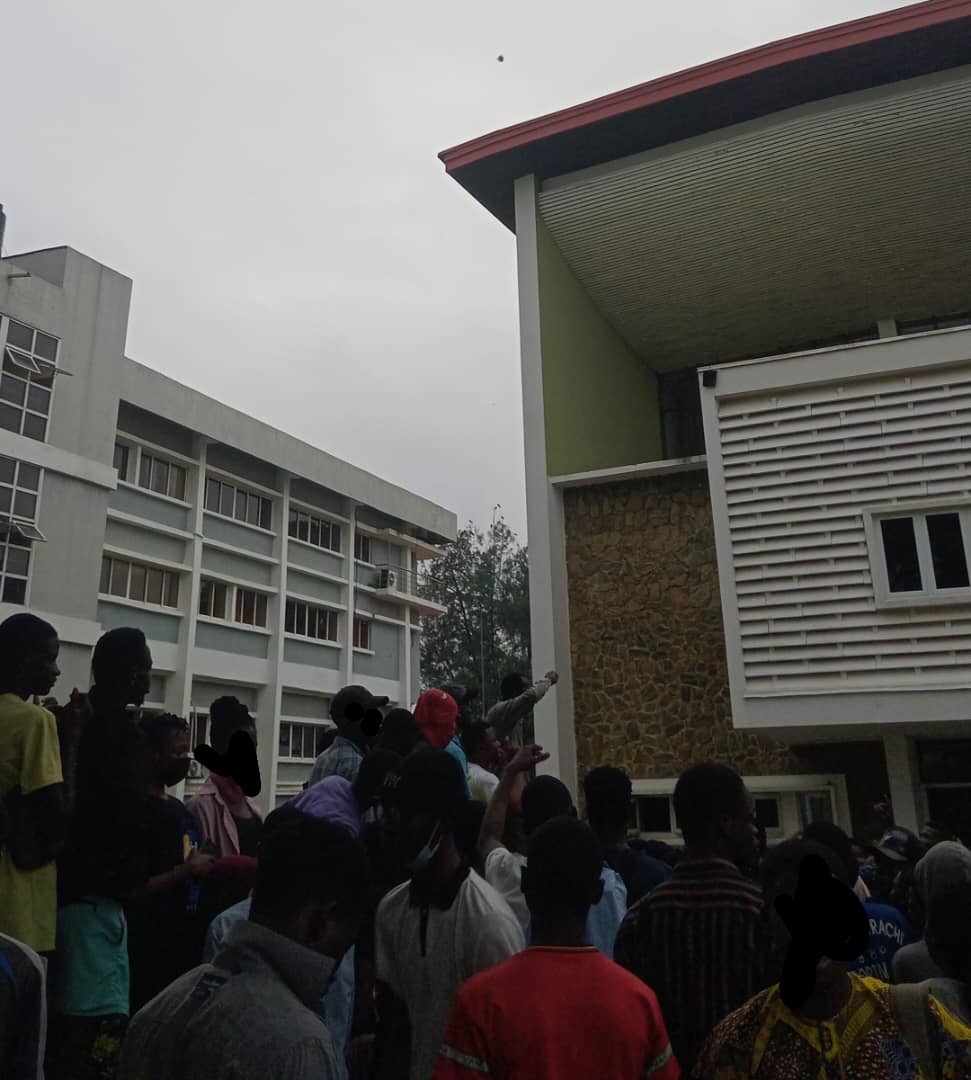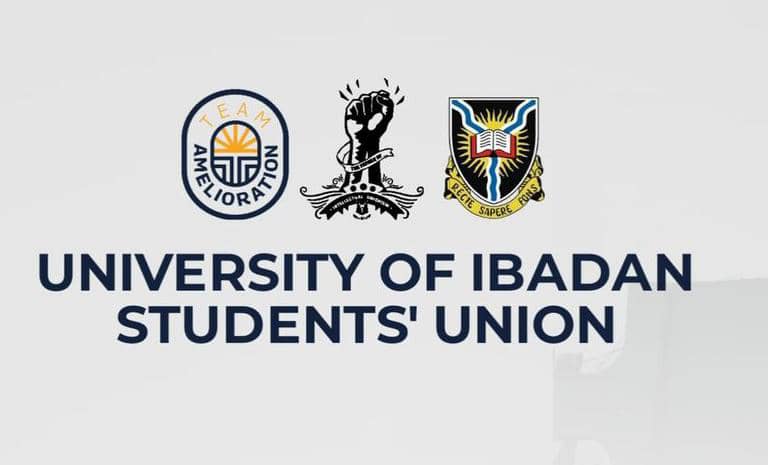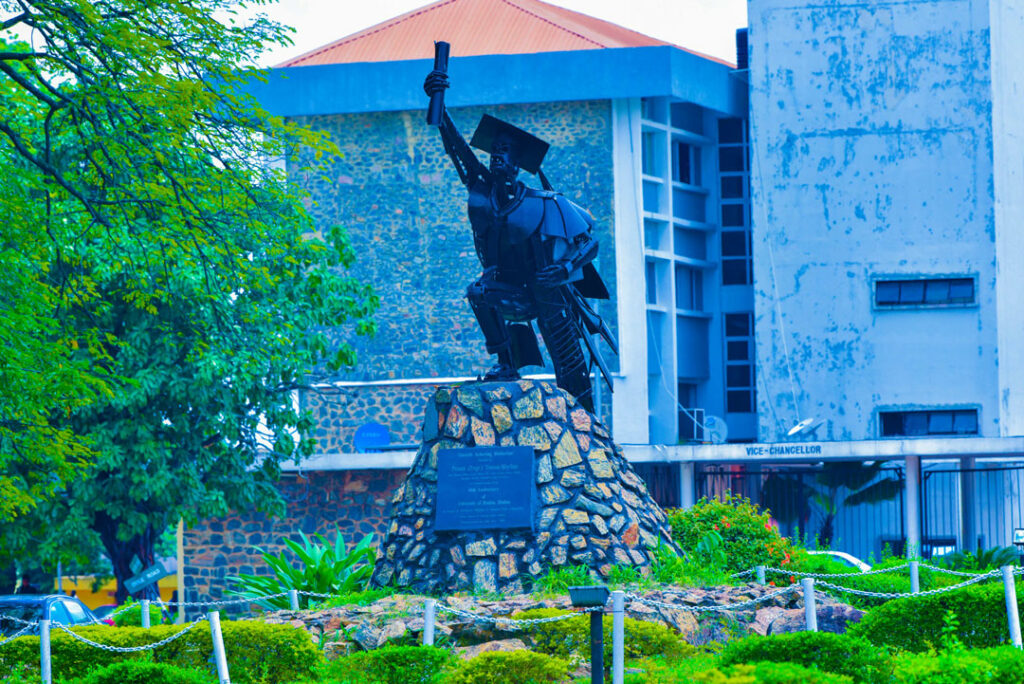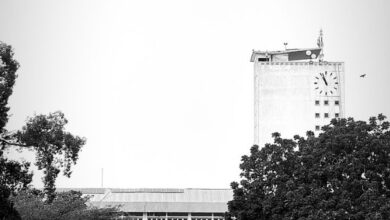The Rot in Debating at the Nation’s Premier Varsity

The University of Ibadan has long been a cradle for intellectual discourse and public speaking. Over the decades, her students (UItes) have cultivated a tradition of eloquence and rigorous debate, earning respect across the nation and beyond. Among these traditions, Jaw War is not just the university’s flagship event for public speaking but also boldly claims the title of the largest social event in the University of Ibadan. On this stage, orators spar with wit, logic, and passion in a celebrated display of intellectual prowess.
At its heart, Jaw War is defined by its unique take on the American Presidential Debate style, a debating style that positions two speakers as sole representatives of their constituencies – faculties or halls – engaging polar aspects of a motion. While this approach has provided structure and flair, it has recently increasingly drawn criticism for fostering theatrics over substance. Many students and observers lament the decline in the quality of discourse, citing issues such as shallow argumentation, performative presentations, and a lack of real engagement with pressing problems.
This editorial delves into the growing discontent surrounding Jaw War and critiques the factors contributing to its perceived decay. Additionally, it offers a comparative analysis of Jaw War’s presidential style and globally recognised formats like British Parliamentary (BP), Australasian debating and Karl Popper. Could it be time for the University of Ibadan to rethink its approach to debating and reinvigorate this hallowed tradition? Or is it a matter of improving certain aspects of this style we have come to love?
A Brief History of Public Speaking in UI
The Literary and Debating Society, University of Ibadan (TLDS’UI) currently serves as the central literary and debating organ of the University. It functions as the umbrella body in which all faculty and hall literary and debating societies operate. Under the University of Ibadan Student Handbook and TLDS UI Constitution, all students are members of the society upon registration into the school, thus making TLDS the oldest and largest student body at the University of Ibadan.
From its earliest days, the University has cultivated a vibrant culture of public speaking, providing a platform for students to hone their rhetorical skills, engage in critical thinking, and tackle pressing societal issues. These forums, often characterised by spirited debates and thought-provoking exchanges, were integral to the university’s reputation as a hub for leadership and innovation. It’s also responsible, in part, for the University’s exportation of so many of Nigeria’s greatest thinkers, a list that extends from the time of the Soyinkas to today with effigies like Mayowa Tijani and Kunle Adebajo; the latter being active participants in the rise of Jaw War.
Moving forward, public speaking events, including inter-faculty debates and interhall competitions, have become a cornerstone of campus life. In theory, these debates are supposed to create a community where ideas can be freely exchanged, challenged, and refined. Amid this rich tradition, Jaw War was born. Revived in 2014 as a premier debating competition within the University of Ibadan, Jaw War was supposed to provide a structured platform for faculties, halls of residence, and students to compete in a battle of wits and ideas. It was designed not only to celebrate oratory but also to promote critical thinking, persuasion, and logical argumentation. Now, Jaw War is the largest stage for any acclaimed public speaker, at least within the University.
Initially, Jaw War upheld these ideals, earning a reputation as a crucible for intellectual debate. Participants were expected to tackle diverse topics ranging from politics and governance to social issues and abstract philosophical themes. Over time, however, it has transitioned to favour a more entertaining style of presidential debating—a format that pits speakers in one-on-one clashes, mirroring the literal American presidential debate setup of recent times.
While this shift brought spectacle and individuality to the competition, it also marked the beginning of its transformation. The Presidential style, with its emphasis on direct rebuttals, bants and concise presentations, began to prioritise performance over intellectual depth. This transition, while well-intentioned, has since become a source of debate itself, with critics arguing that it has diluted Jaw War’s foundational ideals of fostering true critical discourse.
Critique of Jaw War’s Current State
Over time, in an attempt to maintain its status as the largest public speaking event in UI, Jaw War has started to shift from an Intellectual battle filled with meaningful argumentation to an abysmal showing of dramatic and performative displays. Speakers place more emphasis on flair over substance, reducing the intellectual depth of their speeches and the overall topic being discussed.
Critiquing the most recent iteration of the event — Jaw War: Rise of Legends, a few worrisome things can be noticed. We have a ‘structure’ problem as a university. It’s not just about the fact that most speakers come with sub-optimal speech structures or concepts, but also the fact that most of these structures are recycled and reused year after year. One of many examples is the “4-track EP” structure used by a speaker in this edition, the same structure used by a speaker from another constituency in an earlier edition, JawWar 2024, which was held earlier this year. Winning speeches from this edition draw eeringly similar parallels to speeches from the 2021 and 2023 editions of the event. And while it’s good that speakers are drawing inspiration from the past, it’s worrying that the well of creativity appears to have dried up in a few cases.
The anaphoras further worsen the speech crisis. Understandably, a major part of speech delivery is audience engagement, which in part gets you your points on persuasion. However, the adoption of anaphoras in an attempt to force such engagement only worsens the situation surrounding what is supposed to be an intellectual discourse. The repetitive nature of anaphoras, while potentially effective in emphasising a point, often leads to a dilution of substance in the speech. And with the current trend of rehearsed anaphoras, where the supporters of a constituency have been told what to say at certain points of the speech, its overuse can come across as redundant and patronising, as if the speaker is underestimating the audience’s ability to grasp the argument without incessant repetition.
Furthermore, the reliance on anaphoras often shifts the focus from nuanced argumentation to rhetorical spectacle. Audiences seeking genuine intellectual engagement may feel alienated as the speech becomes more about form than content. This undermines the goal of persuasion through reason and evidence, replacing it with a superficial attempt to evoke agreement through sheer repetition.
These rehearsed anaphoras, coupled with the regular hall chants , also illustrate a phenomenon of blind followership. Too often, students chant slogans without critically engaging with their meaning, reinforcing rivalries that sometimes verge on hostility. This unthinking allegiance to hall rhetoric can stifle individual expression, turning participation into a rote ritual rather than a conscious celebration of identity. Yet, on the other side, the overwhelming love for their halls and faculties represents a unique and vibrant tradition that sets institutions like this apart. This collective passion fosters a strong sense of belonging, forging bonds that could remain long after graduation.
The deep-rooted love for halls and faculties, expressed in chants and rivalries, possibly lays the foundation for a thriving alumni system. Unlike universities, where students may feel detached from their institutions, this tradition instils pride and loyalty that carry forward into professional life. Alumni often rally behind their halls, funding initiatives, mentoring younger members, and fostering a strong network. This culture, while occasionally excessive in its expression, remains a cornerstone of community and legacy-building—proof that when traditions are nurtured responsibly, they can transcend time and elevate not just individuals but entire institutions.
Let’s not even speak on the abysmal state of banters and jabs, if at all we must call them that. The creative block that exists with structures seems to vanish when it comes to lines of humour that shame everything from appearance to actual humanitarian crises and culture. It’s despicable, to say the least.
The challenge, then, is to balance passion with perspective, ensuring that the traditions which unite us don’t alienate or diminish others but inspire the growth of a proud, diverse, and forward-thinking community.
In addition , the credibility of any debate hinges on the impartiality of its adjudicators. In Jaw War, however, allegations of bias and inconsistent scoring have become recurring issues. Favouritism or any appearance of bias, whether toward certain halls, faculties, or popular participants, undermines the integrity of the competition. Moreover, the subjective nature of judging often prioritises delivery and theatrics over the actual content of arguments, perpetuating the emphasis on performance rather than substance.
Jaw War’s status as the largest social event in the University of Ibadan has turned it into a spectacle, but at what cost? The growing emphasis on grandeur—lavish opening ceremonies, exaggerated publicity, and dramatised presentations—has overshadowed the intellectual core of the event. The commercial appeal may attract larger audiences, but it also detracts from the event’s original purpose: fostering critical thought, intellectual engagement, and meaningful discourse. On the side of the organisers, there is a growing fear that any attempts to make the event more intellectual and less entertaining could lead to reduced participation by audiences and cause the event to lose its title as the “largest public speaking event in the University of Ibadan.”
But, while it currently remains the largest social event on campus, its intellectual reputation is increasingly at risk. Suppose the event continues to favour theatrics over critical thought. In that case, it may alienate those who value meaningful debate and reduce its credibility as a platform for intellectual growth to a mere spectacle at the end of the day.
For Jaw War to sustain its significance, organisers must recognise that its strength lies in drawing large audiences and also in upholding its role as a crucible for intellectual excellence. Balancing entertainment with substance is key—engaging audiences without sacrificing the quality of the debates. This can be achieved by introducing measures such as better training for debaters, stricter judging criteria that prioritise logical argumentation over false sense of persuasion, and a shift toward debate formats that encourage deeper exploration of ideas.
When comparing this style to other forms of debating styles like the British Parliamentary of the Karl Popper style, the Presidential style is inherently restrictive, focusing on one-on-one debates that limit the diversity of perspectives presented. Formats like British Parliamentary (BP) or Australasian debates involve multiple teams with distinct viewpoints, fostering a richer, more engaging discussion. These styles encourage collaboration and cross-pollination of ideas, which the Presidential format lacks. As a result, audiences are often presented with a narrower discourse, reducing the intellectual appeal of the debate.
Comparing Jaw War’s Presidential Style and Other Debate Formats
JawWar’s Presidential style emphasises one-on-one clashes, creating a dramatic and entertaining format. However, this rigidity often stifles dynamic engagement and limits participants’ ability to explore multifaceted arguments. In contrast, BP (British Parliamentary) and Australasian formats foster interaction among multiple teams, encouraging adaptability and collaboration in argumentation.
Karl Popper debates focus on teamwork and respectful dialogue, fostering logical exchanges and critical thinking. This format emphasises real-world issues, allowing participants to engage deeply with practical and globally relevant topics. Jaw War’s Presidential style, with its narrow and often scripted topics, lacks this level of intellectual exploration. BP and Australasian formats thrive on diversity, tackling philosophical and contemporary themes that challenge participants creatively. These formats prioritise the exchange of ideas over theatrics, ensuring debates remain stimulating and thought-provoking. Jaw War’s Presidential format, on the other hand, often prioritises hall rivalries and performance, limiting its capacity for meaningful discourse.
However, the superiority the Presidential style has, when the University is placed into consideration, can not be overlooked. Except Karl Popper, none of these styles engage the audience as much, reducing debating to more of a debater-panel affair. Also, the amount of time required to complete individual rounds is a lot. The average BP round, for example, takes about an hour. Students, staff, and sponsors do not have the time for, and frankly can not be expected to engage in, such a gruelling affair. It would be too much of a burden to then implement that on UI’s largest debating stage. Another issue is the technicality of these styles. BP and Australasian formats, in particular, focus on role-fulfilment, as they are modelled after Governmental debates. They also have jargon that can be alienating for listeners, bringing us back to the audience engagement angle. When all of this is considered, it becomes strikingly clear that the Presidential style is the best of all the options. So what then can we do?
Compromise and Recommendations
First, TLDS could consider introducing BP and Australasian formats alongside Jaw War’s Presidential style to create opportunities for participants to experience diverse debate structures. These formats, with their emphasis on interaction and adaptability, would challenge debaters to think critically and collaborate effectively. This diversification would broaden participants’ skills and reinvigorate the intellectual culture of Jaw War. An attempt was made to include BP rounds in this current Jaw War, but the semifinal rounds would be held on Tuesday, and there has not been any mention of it. The inclusion of these styles does not have to occur throughout the tournament. Just a few ‘experiments’ at stages were all of these factors: time, audience size, and logistics, wouldn’t be a hindrance.
Furthermore, to ensure fairness, Judges should receive proper training and workshops focused on impartiality and consistent evaluation criteria. Additionally, regular workshops and coaching sessions for debaters would help build foundational skills and encourage originality. These reforms would enhance both the credibility of the event and the quality of the debates. Oral adjudication, where judges explain the reasons behind certain verdicts, should also be emphasized. That way, speakers know what to improve on, rather than just leaving debate grounds the same way they came; with only that day’s performance to be concerned about.
Debate topics should also address issues that resonate with students, blending local concerns with globally significant themes. This approach would make debates more engaging while fostering critical thinking and relevance to real-world issues. Thought-provoking topics also encourage participants to explore diverse perspectives and creative solutions.
Lastly, creating platforms for post-debate reviews would provide participants with valuable feedback and opportunities for growth. These sessions could focus on strengths, areas for improvement, and alternative approaches to argumentation. Constructive critiques would ensure continuous improvement and elevate the overall standard of Jaw War debates. These platforms could include a digital platform like the Jaw War website, where debaters receive written critiques from adjudicators, mentors, and even audience members. This system allows participants to reflect on detailed, asynchronous feedback at their own pace, creating a valuable archive for future reference. To re-emphasize, providing access to recorded debates and hosting review sessions where participants can analyse their performances alongside adjudicators and mentors would allow for self-assessment and an understanding of how their arguments and delivery resonated with the audience and judges.
Conclusion
The decline in the intellectual depth of debating at the University of Ibadan, exemplified by JawWar, calls for urgent attention and reform. To preserve its legacy, JawWar must balance its cultural significance with a renewed focus on meaningful discourse. By embracing globally recognised formats, enhancing fairness in adjudication, and fostering skills through mentorship and constructive feedback, JawWar can regain its credibility. This revitalisation is not just a necessity for the event but a critical step in sustaining the university’s rich tradition of intellectual excellence and innovation.





Good afternoon,
This is a very great editorial which was very enlightening. I would like if this can be addressed to TLDS UI with the hope that some of the recommendations listed above can be looked into. I personally would really like jaw war to get better.
Thanks